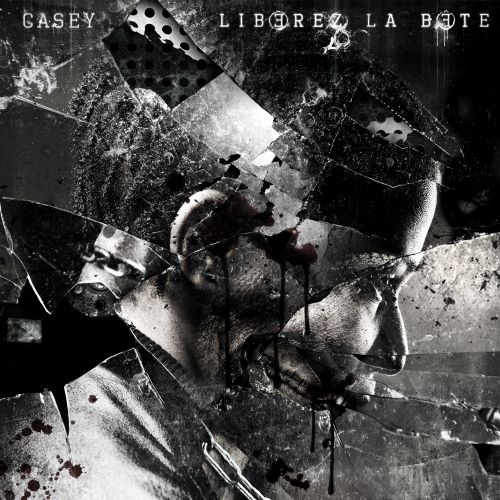According to herself, Casey doesn't practice French rap, but immigrant rap. As a matter of fact, she delivers her music as most rap haters see it: as the culture of young, colored, and threatening foreigners. Through her harsh lyrics, unsettling voice, hostile tone, and unnuanced attacks at everything that hurts - France's slaver and colonial past, the persistence of racism - she confirms that they are right. Also, as vindictive as she can be, it is sometimes dreadful and saddening to see her posturing as a victim, similarly to La Rumeur, a band she is close to. But exactly like them, she excels at that.

She demonstrated it first on her Tragédie d'une trajectoire (a trajectory tragedy) album, and it is even more obvious on Libérez la bête (free the beast). These official solo albums – she released only these two, over her long career – are of high quality. The second one, however, could be her best.
The music there is unsurprising. This is some classic and expected kind of boom bap, with good old scratches. Laloo and Héry delivered an arid and sober production, entirely devoted to the rapper's lyrics, but these beats are subtler than before. And even though Casey remains angry, even though she is as hostile as ever, she sounds a bit less bullish.
While Tragédie d'une trajectoire had highlights such as "Chez moi", a fair depiction of the French West Indies that contradicted postcard clichés, Libérez la bête systematizes the approach. "Primates des Caraïbes" is, somehow, the sequel of this track. "Sac de sucre" uses the same method: let the slave descendants talk, instead of the White. But at times, Casey employs the opposite trick. She uses the perspective of her enemies, and employs their words, to better criticize them. She does it on "Libérez la bête", when she compares to animals the young wildlings of the French suburbs. This approach is at its best with "La créature ratée". There, instead of disparaging the racists, such as so many rappers before her, she underlines their stupidity when describing the Black people with the words of 19th century colonizers.
She talks about the boredom, alienation and despair of the French 'hoods, but in a more delicate way, such as with "Premier rugissement". She is less generic and more personal than with her preceding album, like on "Rêves illimités", probably the masterpiece of the album. Casey talks about people, such as the aging ghetto delinquent she describes on "Marié aux tours". And there's more. At first glance, with her aggressive voice and her intimidating posture, this might not be the rapper's most obvious strengths. And though, Casey is funny. She proves it with the exercises of style such as "Mon plus bel hommage" and its flow of hatred, or "A la gloire de mon glaire", a track entirely dedicated to one theme: the sputum she delightfully spits on others. Same again with "Apprends à t'taire", a quite enjoyable attack on wack MC's.
As said before, Cathy Palenne pretends that she practices immigrant rap. However, she is not the daughter of a foreigner. Sure, she is Black, and she smells of the 'hood. But she is actually from Martinique, she grew up in Rouen, and then she settled in Blanc-Mesnil, close to Paris. She is French. She is 200% French. Her music shows it. Her lyrics full of social commentary? This is a French tradition. Her visceral pessimism, her complaints about the incurable stupidity of mankind? This is a French tradition. Her elaborated and precise lyrics, full of alliterations, displaying roguish words in a classy way? This is a French tradition. Songs where meanings matter more than music? This is a French tradition. This cultural interdisciplinarity, that will lead her to become an actor, or to collaborate with Serge Teyssot-Gay from locally famous band Noir Désir, as well as with other rockers? This is a French tradition. Her recognition, despite her own reluctance, by some intellectuals and the prestigious Normale Sup university? This is a French tradition. Casey, this is France's "chanson réaliste" adapted to the hip-hop age. Casey is France, and this is not a criticism. Quite the opposite: this is our best compliment about her art.
